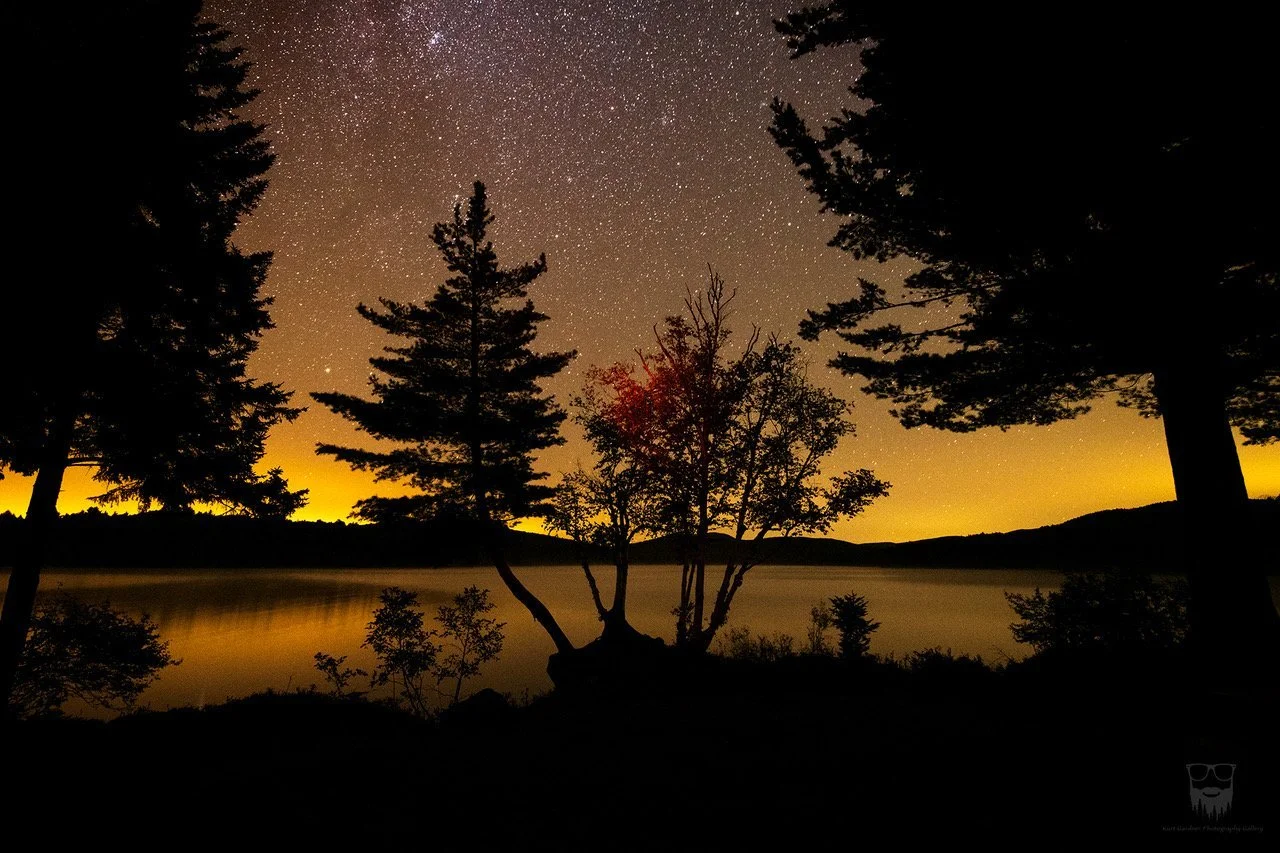Join us for a three night stargazing program at Great Camp Sagamore! Located in one of the darkest regions east of the Mississippi, the central Adirondacks offers some of the best stargazing opportunities around. This program is perfect for all levels, from novice stargazers to expert astronomy enthusiasts, and everyone in-between.
Each evening will include presentations about astronomy, an overview of how to use telescopes and binoculars, history, identification of objects in the sky, and more. Once it get’s dark out we will shut off all the lights in camp and head outside to observe the night sky.
During the day, enjoy all that Sagamore has to offer, including daily historic tours, paddling on the lake, hiking on nearly 10 miles of trails, meals in our historic dining hall, or relax with a book by the lake.
This is an all inclusive program, which includes lodging, meals, instruction, daily activities and access to Sagamore’s canoes and kayaks. The instructor will be providing telescopes to share and observe, but participants are welcome to bring their own equipment as well.
Instructor
John Rusho, Program Instructor
I was born and raised in Watertown, NY, living there from 1942 to 1969. I attended the colleges of SUNY Canton and Oswego, holding B.S. and M.S. degrees in Technology Education. Most of my primary occupations have been in the fields of mechanical engineering and management, in the Watertown and Central NY areas, retiring as a Project Engineer.
Beyond my occupations, I have always had many interests, including boating, model building, aviation, naval history, classic cars, rocketry, and space exploration. But, the oldest and most is astronomy.
My oldest astronomical recollection is an uncle showing me the Moon through an old brass field glass, probably early grade school era. My first book on the subject was "The Sky Above Us" dated 1948. I read it to disintegration, but have a good copy today. While growing up, astronomy enthusiasts were scarce in Watertown, and it was not emphasized in the science curriculums.
My first telescope, a small refractor, arrived during high school. During the 1960's, there was some astronomical participation at SUNY Oswego, although I was not a science major.
In 1967, I obtained my first real scope, a 6" reflector. Later, some partial solar eclipse and comet photos taken with it made the local media. In 1969, a 3" rich field refractor became my first home build. In 1970, I took an evening astronomy course at JCC, where both scopes were used, and the professor became a lifelong friend. I returned several times as a guest lecturer with my new 10" scope, beginning my "sideline" career in astronomy education.
After moving to central NY in 1973, and I joined the Syracuse Astronomical Society, eventually serving as Instrumentation Chair, VP, and President. By this time, I realized that designing and building telescopes was just as interesting as using them, so I rebuilt a 14" scope that was donated to the club, and scratch built a 14" of my own. I also became one of the members teaching adult astronomy classes, another step towards that second career.
An outstanding event in 1989 was having dinner with Dr. Clyde Tombaugh, who discovered the (now dwarf) planet Pluto in 1930. Much later, I inspected the instruments he used at the old Lowell Observatory in Flagstaff, now a public outreach center.
From 1994 to 2011, I taught evening astronomy labs at OCC as an adjunct. After retiring from full time work, I taught astronomy lectures at Oswego State from 2006 to 2016, again as an adjunct.
While at Oswego, I contributed to the design and instrumentation of Oswego's new observatory, and performed a ground up restoration of the college's 100 year old classic Brashear telescope, now on display at a local museum. I was also one of the first two qualified operators of the new digital planetarium. I "retired" myself from all this in 2016, and moved to Chaumont, NY, near Watertown.
In 2015, I acquired my largest and likely last major telescope - a 27" reflector. Currently, I teach a short, summer adult astronomy course through the local library. I saw my first successful total solar eclipse in Missouri in 2018, and look forward to the “local” one in 2024.





